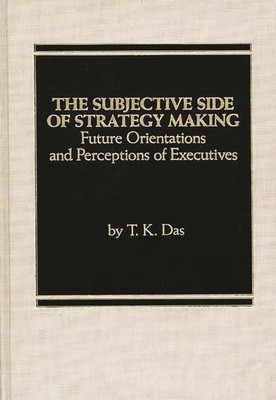
- We will send in 10–14 business days.
- SAVE -10% with code: EXTRA
Reviews
Description
This book proposes a conception of the corporate strategy making process that recognizes the individual strategy maker as a center-stage corporate actor. This individual-centered view of the stategy making process is needed in order to better understand the interplay between objective factors and the subjective perceptions and values of strategy makers. Using a large sample of executives working in two of the ten largest U.S. commercial banks, Das examines empirically the dynamics of two critical aspects of the role of individual strategy makers: future orientation and perceptions of the strategic planning milieu. He discusses the various implications of his findings for further research into the strategy making process. The author demonstrates the utility of individual future orientation in understanding how strategy makers influence the character of the eventual corporate strategy. The results of Das' study help to explain why long-range planning is really more short-range than anyone cares to admit.
EXTRA 10 % discount with code: EXTRA
The promotion ends in 20d.21:34:38
The discount code is valid when purchasing from 10 €. Discounts do not stack.
- Author: T K Das
- Publisher: Praeger
- ISBN-10: 0275923401
- ISBN-13: 9780275923402
- Format: 15.6 x 23.4 x 1.8 cm, hardcover
- Language: English English
This book proposes a conception of the corporate strategy making process that recognizes the individual strategy maker as a center-stage corporate actor. This individual-centered view of the stategy making process is needed in order to better understand the interplay between objective factors and the subjective perceptions and values of strategy makers. Using a large sample of executives working in two of the ten largest U.S. commercial banks, Das examines empirically the dynamics of two critical aspects of the role of individual strategy makers: future orientation and perceptions of the strategic planning milieu. He discusses the various implications of his findings for further research into the strategy making process. The author demonstrates the utility of individual future orientation in understanding how strategy makers influence the character of the eventual corporate strategy. The results of Das' study help to explain why long-range planning is really more short-range than anyone cares to admit.


Reviews